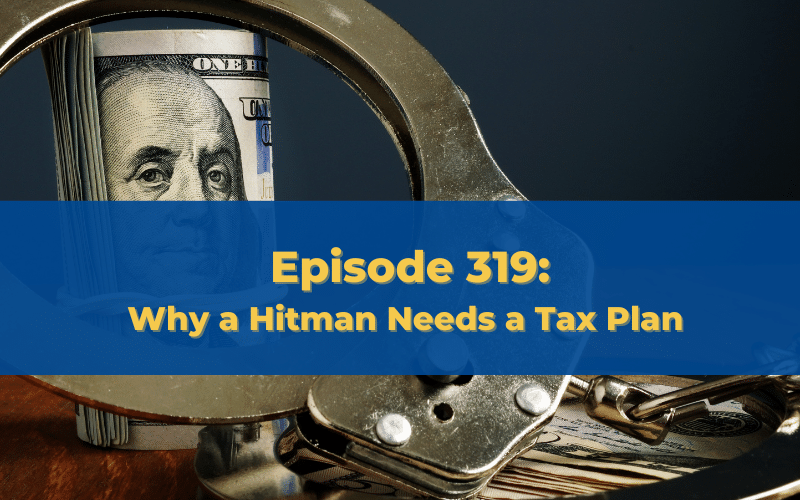Podcast: Play in new window | Download | Embed
Subscribe Apple Podcasts | RSS | Subscribe:
Pet trusts allow owners to set aside funds for ongoing pet care, presumably when the owner can no longer provide care themselves. With a pet trust, the grantor – the pet owner in most cases – funds the trust and names a trustee to manage it. This is usually a close family member or friend.
For the purposes of estate planning, pets are considered property. As such, they cannot be given money or assets. Instead, control of those assets must be given to a person or organization who assumes care for the pet. A pet trust is the medium through which this is arranged.
If you are concerned about your beloved pet’s well-being after you can no longer care for them, a pet trust ensures they are provided for.
Why Pet Trusts are Important: A Tale of Two Horses
For this topic, we spoke to friend-of-the-firm and horse veterinarian Ciera Guardia of Guardia Equine. Ciera has worked with horse owners for years and has seen the benefits of establishing a pet trust firsthand. Here are two real-life examples from her practice:
- The horse with a trust – One of Ciera’s clients battled chronic illnesses for years prior to her passing, so she established a pet trust for her beloved horse well in advance. Upon creating the trust, she named her daughter as the trustee. It’s been a few years since Ciera’s client has passed, but her horse remains cared for. In fact, Ciera continues to provide vet services to the client’s daughter, who pays her using a card tied to the trust account. For the horse, quality of life is not a concern.
- The horse with no trust – Many of Ciera’s clients do not set up a pet trust for their horses before they pass. For example, one client had several horses – some with special health needs – who were not provided for in a will or trust. When the client passed, no one in the family was interested (or had the means) to take the horses in. The fate for horses in this situation can be grim. Some may waste away in an abandoned pasture. Some may be redirected to a food chain in another country. To prevent this, and in light of some of the horses having special medical needs, the decision was made to humanely euthanize the animals.
A pet trust gives owners peace of mind, knowing that the resources will be there to care for their pet. However, a trust is only one part of the estate planning equation if a pet is involved. You will also need a will.
Wills and Trusts: Why it’s Important to Have Both for a Pet
Pet trusts provide the funds necessary for ongoing care, but they do not establish how care is to be provided. That’s what a will does. A will allows you to do the following:
- Establish a pet trust upon your death or upon becoming incapacitated
- Name the person who will oversee pet care
- Name the person in charge of your pet trust (the trustee)
- Specify preferences for a veterinarian or pet care team
- Specify preferences for retiring or donating the pet to an animal-focused organization
- Specify the conditions under which it would be appropriate to humanely euthanize the pet
- Specify a disposition method for the pet (burial vs. cremation)
If you are setting up a pet trust, chances are that you have an idea of how care should be administered. A will ensures those desires are known and carried out to the extent that they can be.
Testamentary vs Living Pet Trusts: Which is Better for Pet Care?
There are many types of trusts that can be used for estate planning purposes, but pet trusts generally fall into one of two categories – testamentary trusts or living trusts (sometimes termed intervivos trusts). Here’s a summary of both:
- Testamentary trusts – A testamentary trust is a trust that’s established through a will, upon the grantor’s death. In effect, this means the pet trust does not exist until the grantor dies. This can be an issue if the grantor is incapacitated and can no longer care for their pet. Assets designated for a testamentary trust must also pass through probate, which can be expensive and time consuming for families.
- Living, or intervivos, trusts – Living trusts are established while the grantor is still alive and for as long as they are funded. It’s common for grantors to act as the trustee for their own pet trust while alive, and to set conditions for when the trust should be passed on to a successor trustee. This could be when the grantor dies or when they are medically incapacitated. Funded living trusts also do not pass through probate. They’re passed on to the beneficiary or successor directly.
Our firm recommends setting up a living trust whenever possible, but every client’s situation is different.
How Much Money Does a Pet Trust Need?
The biggest factors to consider when funding a pet trust include:
- The pet’s age and expected lifespan
- The pet’s overall health (do they have any chronic illnesses?)
- The types and cost of any medications
- Where the pet will be housed or boarded
- The people you’ll need to continue care (veterinarian, caretaker, etc.)
Some pets – horses for example – may be sent to retirement facilities or pastures to live out their golden years. This cost should also be factored in. A veterinarian can provide expert insight into the above, so consulting with your vet before establishing a pet trust is recommended.
How Much is Needed to Fund a Pet Trust?
As for funding a pet trust, your accountant can help with that. And it is important to consider how much you are setting aside in the trust.
For example, some people greatly overfund their pet trust. Once their pet passes, there may be a small fortune left in the account. In return for caring for their pet, many grantors decide to give the trustee whatever is left in the account. Consider, though, the potential incentive that this arrangement sets up – the trustee stands to inherit a lot of money when the pet dies. You’ll want someone you can rely on in that role. Alternatively, grantors can avoid overfunding the trust to a large degree.
This and other trust-related considerations can be complex. Your accountant and attorney, though, can make sense of them for your situation.
Your Estate Planning Attorney or Accountant Can Create a Pet Trust in Your Name
Wills and trusts are vital estate planning tools, and a pet trust ensures your furry family members are considered as well. If you have pets that are dear to you, consult with your estate planning attorney to determine how a pet trust can protect your cherished animals.


